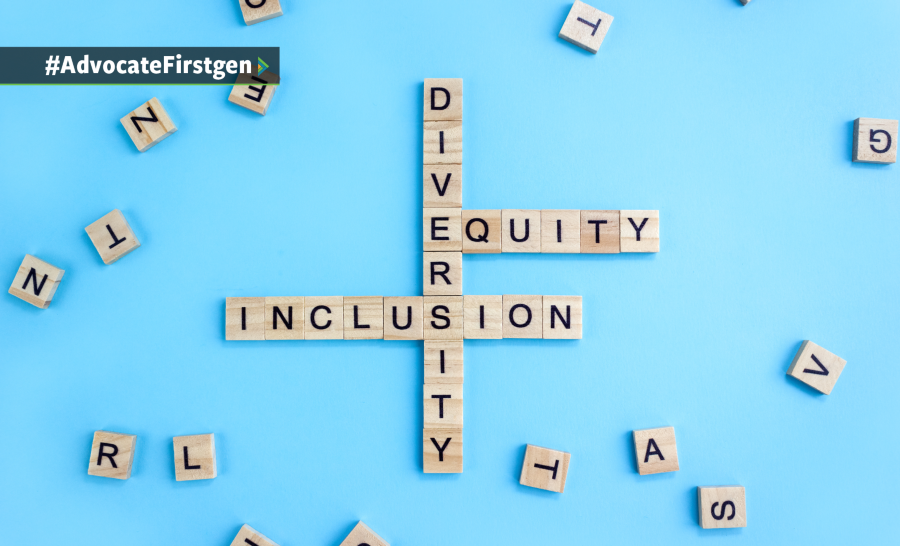Three Ideas for Post-Coronavirus Educational Recovery
There are many ways that schools can proactively address the inevitable and inequitable gaps caused by coronavirus-related school closures.
Ciera Graham, Ph.D.; Bianca Evans, Ph.D.; Shakima M. Clency, Ph.D.; & Tracie Lowe, Ph.D., The Black First-Gen Collective / FirstGen Forward / March 05, 2024

Educational endeavors aimed at promoting Black first-generation students align with broader initiatives prioritizing diversity, equity, and inclusion (DEI) within higher education settings. Despite growing momentum for DEI in academic institutions, these efforts face challenges due to mounting national and state legislative actions seeking to eradicate DEI initiatives at colleges, universities, and professional schools receiving state funds (Bryant & Appleby, 2023). As of February 2024, we are monitoring 71 bills in 25 states—eight of which have become law (Lu et al., 2023). This state legislation directly impacts diversity efforts in higher education by imposing restrictions on DEI offices; prohibiting mandatory DEI training for employees and students; banning the use of diversity statements in hiring; eliminating identity-based preferences in admissions, promotion, employment, and tenure decisions; and reviewing and modifying curricula and academic programs. Non-compliance could result in the withdrawal of state funding. However, exemptions to these laws include federal compliance, accreditation standards, research grants, and student organizations.
Using 'first-generation' and low-income as a proxy for race masks the reality of Black first-generation students’ experiences and undermines equity efforts aiming to address the inequities these students encounter.
The anti-DEI legislative movement represents a concerted and well-organized political endeavor aimed at reshaping laws and policies to impact the freedoms, definitions, programs, funding, strategies, and approaches related to diversity, equity, and inclusion. This movement targets women, LGBTQ, historically minoritized racial and ethnic groups, and other diverse communities. Ultimately, the influence of model state legislation (Manhattan Institute, 2023) on college campuses hinges on its interpretation, implementation, and enforcement—underscoring the need for constructive dialogue among stakeholders like students, faculty, administrators, and policymakers—to address concerns and uphold principles of academic freedom, intellectual diversity, and respect within the campus community. The Supreme Court ruling in Students for Fair Admissions, Inc. v. President & Fellows of Harvard College against race-conscious affirmative action [143 S. Ct. 2141, 2175 (2023)] and the rollback of DEI efforts in academic institutions exacerbate these challenges. These setbacks hinder efforts to diversify applicants and enrollment in academia, impede the development of a more inclusive and equitable society, and disrupt educational pathways to cultivate a diverse cohort of future Black first-generation practitioners and scholars.
In response to these recent educational legislative actions, the Center for First-generation Student Success has named diversity and inclusion as a priority advocacy issue in 2024. Central to this advocacy is the acknowledgment of first-generation students’ racial diversity with an emphasis on the experiences of Black first-generation students—who have received little attention from both an empirical research and public policy standpoint. A group of scholar-practitioners founded the Black First-Gen Collective in response to the dearth of published articles, research, and policy specifically addressing Black first-generation students' experiences and barriers to college entry, persistence, and graduation.

The anti-DEI movement aims to curb campus-wide and public policy efforts that combat the inequities facing Black first-generation students while masking their different and racialized realities. Black students report experiencing racial battle fatigue due to increased incidences of racial hostility and microaggressions while also facing common first-generation student challenges like lack of exposure to the college-going culture, feelings of guilt and shame, familial pressure, loneliness, and financial challenges (Solórzano et al., 2000).
First-generation students and their families often need to familiarize themselves with the true cost of college. Unclear materials and misunderstandings may lead students to take out unnecessary loans, rack up credit card debt, or even drop out of school. In particular, we know Black students are more likely to take out student loans and face barriers to repayment (AAUW, 2018). An inability to understand different racial and ethnic groups’ college financial knowledge stymies our ability to develop and implement targeted financial education and literacy programs.
The anti-DEI movement aims to curb campus-wide and public policy efforts that combat the inequities facing Black first-generation students while masking their different and racialized realities.
Recent legislation implores us to use blanket descriptors like “first-generation” instead of instituting race-based language. Using “first-generation” and low-income as a proxy for race masks the reality of Black first-generation students’ experiences and undermines equity efforts aiming to address the inequities these students encounter both inside and outside of the college environment.
If you are interested in advocating for Black first-generation students, here are some critical strategies identified by the Black First-Gen Collective:
Talk with Black first-generation students and disaggregate student-level data by race to understand their unique needs and experiences in higher education. Capturing and using this data is necessary to identify promising practices and resources to improve outcomes and close equity gaps for Black first-generation college students.
Contact state and federal legislators to emphasize the importance of introducing and supporting legislation focused on the needs of Black students.
Remain aware of intersectionality’s importance to student success. While first-generation students share similar struggles, we invalidate aspects of the student experience by overlooking how intersectional identities like race and gender create different systemic barriers. Additionally, using an asset-based paradigm instead of deficit thinking can validate students’ strengths and potential and empower their agency to drive change.
Share and elevate your work! If your college or university is leading initiatives centering Black first-generation students, share your efforts on social media, present at conferences, and contribute to relevant literature on the experiences of Black first-generation students. The Black First-Gen Collective has compiled a bibliography of published scholarship to amplify the stories and research on Black first-generation students.
By joining us in advocating for Black first-generation students, you can highlight how harmful state and federal legislation curbing campus DEI efforts is for students, their communities, and the workforce.
American Association of University Women (AAUW). (2018). Deeper in Debt: Women and Student Loans.
Brown McNair, T., Bensimon, E. M, & Malcolm-Piqueux, L. (2020). From Equity Talk to Equity Walk. Josey-Bass.
Bryant, J., & Appleby, C. (2023). These states’ anti-DEI legislation may impact higher education. Best Colleges.
Lu, A., Elias, J., June, A. W., Charles, J. B., Marijolovic, K., Roberts-Grmela, J., & Surovell, E. (2023). DEI legislation tracker. The Chronicle of Higher Education.
Manhattan Institute. (2023, June 15). Abolish DEI bureaucracies and restore colorblind equality in public universities | Manhattan Institute.
Solórzano, D., Ceja, M., & Yosso, T. (2000, Winter/Spring). Critical race theory, racial microaggressions, and campus racial climate: The experiences of African American college students. Journal of Negro Education, 69(1/2), 60–73.
Strayhorn, T. L. & Terrell, M. C. (2010). The Evolving Challenges of Black College Students. Routledge.
Students for Fair Admissions v. President and Fellows of Harvard College. 600 U.S. ___ (2023).